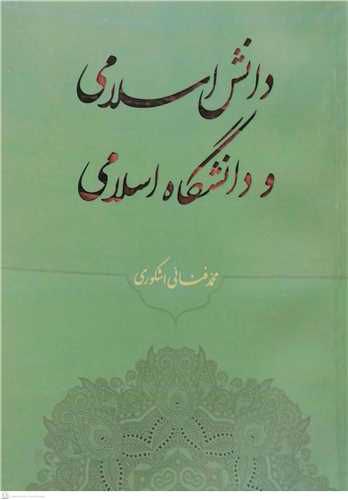Islamic Knowledge and the Islamic University (دانش اسلامی و دانشگاه اسلامی), Qom, Imam Khomeini Educational and Research Institute, 1998.
This book, published in octavo format and consisting of 160 pages, comprises five essays centered around the themes of the Islamicization of knowledge, the relationship between religion and reason, and the philosophy of science.
Under the title “Islamic Knowledge and the Islamic University,” the author explores how to establish an educational system grounded in Islamic principles. By critiquing Western educational systems, he emphasizes the necessity of redefining concepts such as “religious science” and “Islamic university.” He argues that both the human and natural sciences must be aligned with the monotheistic and ethical worldview of Islam in order to avoid the epistemological crises of modernity.
In the essay “The Nature of Modern Sciences in Islamic Culture,” the author examines the role of empirical sciences in Islamic civilization and compares it with the scientific developments of the West. He stresses that modern sciences should not be regarded as purely Western constructs but can instead be reinterpreted and localized within the framework of Islamic philosophy.
In the essay “Is Metaphysics Possible?” the book addresses Immanuel Kant’s views on the matter and defends the possibility of metaphysics. The author refutes Kant’s critiques and, based on Islamic philosophical tradition, argues that metaphysics is not only possible but also essential.
The essay “A Reflection on Logical Positivism” introduces the core claims of this school of thought and critiques its limitations—especially its inability to account for abstract forms of knowledge such as ethics and religion. The conclusion is that logical positivism fails to provide a satisfactory explanation or justification for human knowledge.
Finally, in the essay “Induction and Experiment,” the relationship between induction (the method of deriving general principles from particulars) and empirical observation is explored. By analyzing the views of both Islamic and Western philosophers, the author argues that induction cannot lead to certain knowledge unless it is supported by rational foundations.
